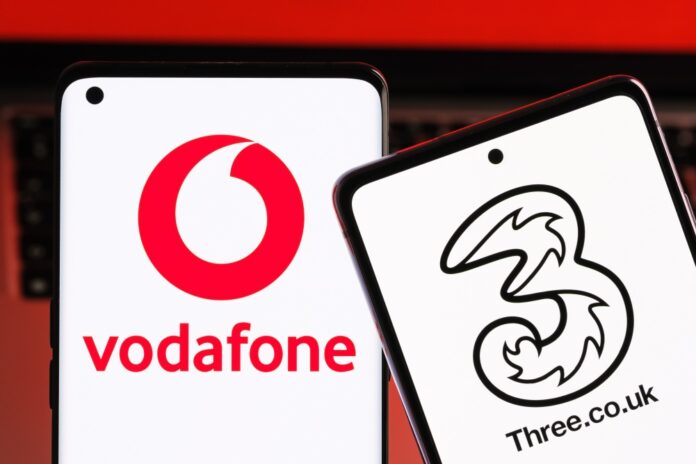The “evidence” to support this is contradictory and confused – and of course a merged entity would still be subject to regulation
Mobile phone bills could rise by as much as £300 (€346.73) a year if the proposed merger of Vodafone UK and Three UK goes ahead according to the Unite trade union.
Unite claims that in addition to putting prices up for consumers, the. merger also poses a threat to national security. This is on the grounds that Three UK’s parent company is CK Hutchison, which is based in Hong Kong on national security grounds.
Less competition, fewer jobs
George Stevenson, an investigative researcher at Unite, was quoted by The Guardian newspaper saying, “This evidence if clear: this merger is a terrible deal for Britain”. Stevenson is to give evidence to the Parliamentary business and trade select committee today.
He added, “When you reduce competition, prices go up, jobs get slashed, and the promise of investment turns out to be hollow. We will continue fighting to ensure this harmful merger is scrutinised thoroughly by regulators and government alike.”
Vodafone and Three UK have promised to invest £11 billion in 5G infrastructure over the next decade if the merger is allowed.
Mixed messages and outcomes
Regulators, government and competition authorities take different approaches in different markets, with mixed results, regarding consolidation within markets. It seems to moving from four to three competitive mobile operators creates particular anxiety, as though after mergers regulators have no powers to prevent abuse of market power.
Having followed this issue for a couple of decades, Strand Consult pointed out that the European Commission has both approved and blocked such a move. It allowed Three Italy and Wind to merge in Italy in 2016, with remedies, although that didn’t pan out so well, according to this analysis from Lightreading.
In the same year, the Commission blocked a proposed tie-up between Telefónica which trades under the brand name O2 in the UK and Three UK. The European Union’s General Court annulled the O2/Three decision in 2020, but this was revised again subsequently in July 2023, by Europe’s highest court, the Luxembourg-based Court of Justice of the European Union (CJEU). It cited legal errors in the General Court’s ruling.
The US’ Federal Communications Commission (FCC) approved the acquisition of Sprint by T-Mobile in August 2020, again with remedies including DISH becoming a fourth national operator. This has proved somewhat fraught – most recently with squabbles about T-Mobile acquiring 600MHz spectrum – and did not meet favour in all quarters.
In contrast, in 2019, Strand points out that the Australian Competition and Consumer Commission (ACCC) found that the country’s three networks were delivering a competitive outcome for consumers.
Progress in the UK?
Last year the UK telecom regulator, Ofcom, indicated it was more open to consolidation than it had been previously with Sharon White at the helm. It said in a statement, “Our stance on a potential merger would be informed by the specific circumstances of that particular merger, rather than just the number of competitors”.
Last week, the UK’s Competition and Market Authority (CMA) invited interested parties to submit their opinions on the proposed deal.
Security risks?
Security concerns are the province of the UK government. It and other governments (including Australia, the US, Canada and Sweden) have prohibited the use of Chinese vendors’ equipment in 5G infrastructure, fearing the infrastructure could be used for state-sponsored espionage by China.
In the UK and elsewhere, governments are forcing network operators to rip Huawei equipment out of some infrastructure – Vodafone is the most badly affected in the UK.
Now there are new fears being stoked as Three UK’s parent company is based in Hong Kong, which is controlled by China. Vodafone UK has public sector contracts with the Ministry of Defence, the Ministry of Justice, NHS 111 and local police forces.
The deal is almost certain to be scrutinised by the government under the National Security and Investment Act 2021.



